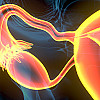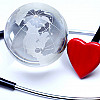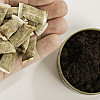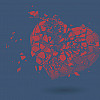Recent Blog Articles

Lead poisoning: What parents should know and do

How does waiting on prostate cancer treatment affect survival?

Does running cause arthritis?

Is alcohol and weight loss surgery a risky combination?

Preventing ovarian cancer: Should women consider removing fallopian tubes?

Healthier planet, healthier people

Is snuff really safer than smoking?

Will miscarriage care remain available?

Considering collagen drinks and supplements?

Does less TV time lower your risk for dementia?
Yaws
What Is It?
Yaws is an infectious disease that affects the skin and bones. It's a tropical illness that was once common in West Africa, Indonesia, New Guinea, the Solomon Islands, Haiti, Dominica, Peru, Colombia, Ecuador and parts of Brazil. In these countries, yaws most often affects children between the ages of 2 and 5, especially children who wear few clothes, have frequent skin injuries and live in areas of poor hygiene.
During the 1950s, yaws was a common tropical illness, infecting 50 million to 100 million people. Since that time, the World Health Organization (WHO) has battled yaws in many tropical areas of the world. More than 160 million people have been examined in 46 countries, and more than 50 million cases of yaws have been treated with penicillin. As a result, the incidence of yaws declined dramatically worldwide. This disease always has been extremely rare in the United States.
To continue reading this article, you must log in.
Subscribe to Harvard Health Online for immediate access to health news and information from Harvard Medical School.
- Research health conditions
- Check your symptoms
- Prepare for a doctor's visit or test
- Find the best treatments and procedures for you
- Explore options for better nutrition and exercise
I'd like to receive access to Harvard Health Online for only $4.99 a month.
Sign Me UpAlready a member? Login ».
Disclaimer:
As a service to our readers, Harvard Health Publishing provides access to our library of archived content. Please note the date of last review or update on all articles.
No content on this site, regardless of date, should ever be used as a substitute for direct medical advice from your doctor or other qualified clinician.
Free Healthbeat Signup
Get the latest in health news delivered to your inbox!
